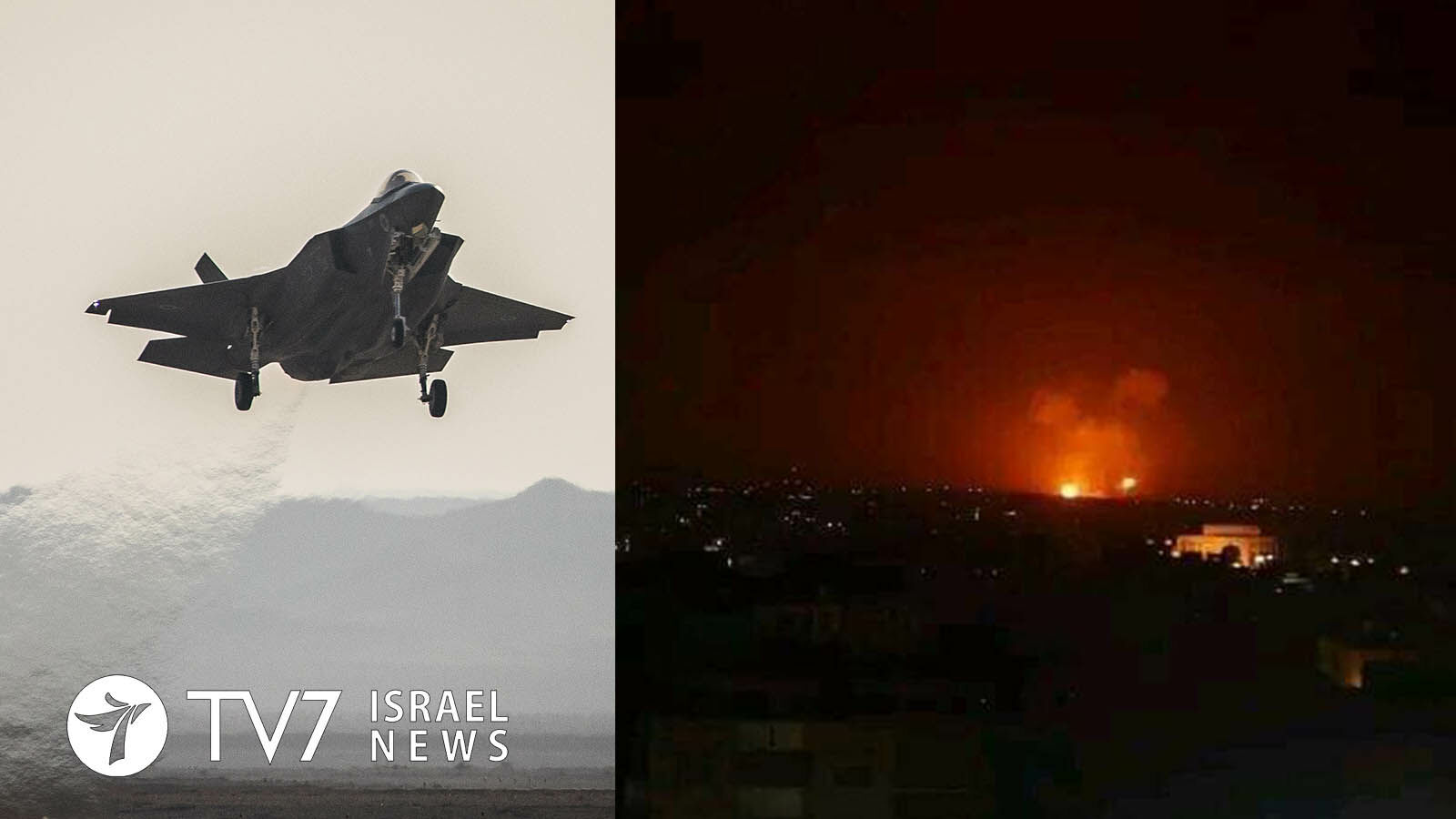Unidentified aircraft launched a salvo of missiles targeting Iranian installations in the vicinity of Damascus, in the second such strike in less than 24 hours.
By Jonathan Hessen and Erin Viner
Just after midnight last night, the Syrian Armed Forces (SAF) said “bursts of missiles” launched from the direction of the Golan Heights targeted “a site in Damascus countryside.”
The incoming projectiles evidently penetrated Syria’s aerial defense systems, causing what the SAF said were “some material losses.”
Iran’s state-controlled Tasnim News published a statement by the Islamic Revolutionary Guards Corps (IRGC) announcing that one of its officers, who operated in Syria under the guise of a so-called “military advisor,” was killed in the attack; which Tehran joined Damascus in attributing to Israel. Expressing outrage over “silence and inaction” by the international community over Israel’s alleged “violations of Syria’s sovereignty and territorial integrity,” the IRGC pledged it would seek to exact revenge on what it referred to as “the fake and criminal Zionist regime.”
Yesterday morning, an SAF source cited by state television reported that several missiles, also launched in an overnight strike from the Golan Heights, wounded two soldiers and caused material damage near Damascus. The Syrian Foreign Ministry condemned Israel for launching the attack in an “attempt to escape internal fragmentation,” in an apparent reference to recent protests that saw hundreds of thousands rally against a judicial overhaul that was ultimately delayed.
An opposition source with contacts on the ground said that yesterday’s predawn strikes hit a car carrying pro-Iran personnel near a Syrian security building near Kafr Sousa.
There have now been six strikes on Syria this month attributed to Israel.
Iranian terrorist proxies then fired rockets at a base hosting United States forces in the northeast, killing one American contractor and wounding another, as well as several troops. The US responded with air strikes on facilities in eastern Syria it identified as affiliated with the IRGC.
Israel has for years been carrying out attacks against Iran-linked targets in Syria, where the Ayatollah regime’s influence has grown since it began supporting President Bashar al-Assad in his country’s civil war that began in 2011. Iranian proxies, led by Lebanon’s Hezbollah terror organization, now control large areas of eastern, southern and northern Syria and in several suburbs around the capital.
Western intelligence officials say the Islamic Republic has stepped up aerial weapons shipments to its terrorist proxies, including the Hezbollah terror organization, in attempts to evade IDF strikes on overland ground convoys. Strikes on Syrian airports and air bases have intensified in recent months.
The IDF Spokesperson’s Unit neither confirmed nor denied Israeli involvement in the strikes in response to TV7’s request for comment.
Although officials rarely acknowledge responsibility for specific operations, Israel has acknowledged mounting hundreds of attacks on Iranian-linked targets in Syria – where the Islamic Republic’s forces and proxy have become entrenched in deployments aimed at attacking the Jewish State for almost a decade. Research centers for weapons development and munitions depots operated by IRGC have particularly been in the IDF’s crosshairs.
Israeli political and defense leaders have repeatedly stated that Iran’s presence just over the northern frontier will not be tolerated.
